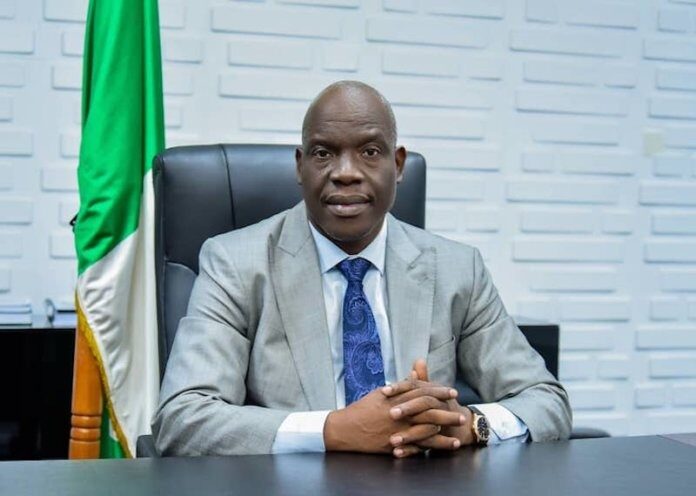The Nigerian Upstream Petroleum Regulatory Commission (NUPRC) has received the final Engineering Audit report on Upstream Measurement Equipment and Facilities from PE Energy, aimed at enabling real-time tracking and transparent reporting of oil production through advanced metering technologies.
NUPRC confirmed the receipt of the audit in a statement obtained by newsmen on Tuesday.
Engr. Gbenga Komolafe, the Commission Chief Executive of NUPRC, in his remark, noted that the results would redefine how Nigeria manages and monetizes its most vital natural resource.
He therefore pledged to ensure that the recommendations are fully implemented.
According to the Commission, the Federal Executive Council in 2024, approved the report as part of decisive response towards the improvement in hydrocarbon measurement and accountability to ensure optimal revenue collection within Nigeria’s oil and gas landscape.
Recall that the Petroleum Industry Act (PIA) 2021, mandated the NUPRC with the task of ensuring that hydrocarbon resources are accurately measured and reported.
The Commission therefore revealed that the audit has helped in conducting a gap analysis, delivering a verified baseline inventory of all measurement points, and implementing a competency transfer program for the Commission toward reshaping regulatory culture in the upstream sector.
Areas covered by the audit include on-site inspections and evaluations of all upstream metering systems, documentation of both current and ideal measurement points as defined by the PIA, development of intervention strategies ranging from equipment upgrades to new installations, and advisory services to optimize measurement in areas with limited metering infrastructure.
NUPRC emphasised that the initiative aimed at safeguarding Nigeria’s commonwealth and enforcing accountability in the oil and gas sector.
Daere Akobo, Chairman of PE Energy, in his comment stated that the audit initiative is a critical pillar in Nigeria’s broader reform agenda for the oil and gas sector.
“It seeks to overhaul how oil production is measured and monitored, sending a clear message that a new era under the Petroleum Industry Act has begun, where accuracy, accountability, and transparency are non-negotiable,” Akobo said.
Advisors Reports’ findings have uncovered persistent transparency deficiencies in Nigeria’s oil and gas sector, which continue to cost the country billions in lost revenue.
The Nigerian Extractive Industries Transparency Initiative (NEITI) recently disclosed that, in 2024 alone, the country lost an estimated 300,000 barrels of crude oil daily due to theft and pipeline vandalism.
The report warns that without urgent and decisive reforms; these losses could significantly worsen by the end of 2025.
In a related development, the World Bank and the Extractive Industries Transparency Initiative (EITI) had earlier reported that Nigeria recovered $3 billion through transparency-focused reforms as of 2020.
However, WB and EITI noted that approximately $20 billion in potential revenues still remain unaccounted for and could be retrieved with improved governance and enforcement

























